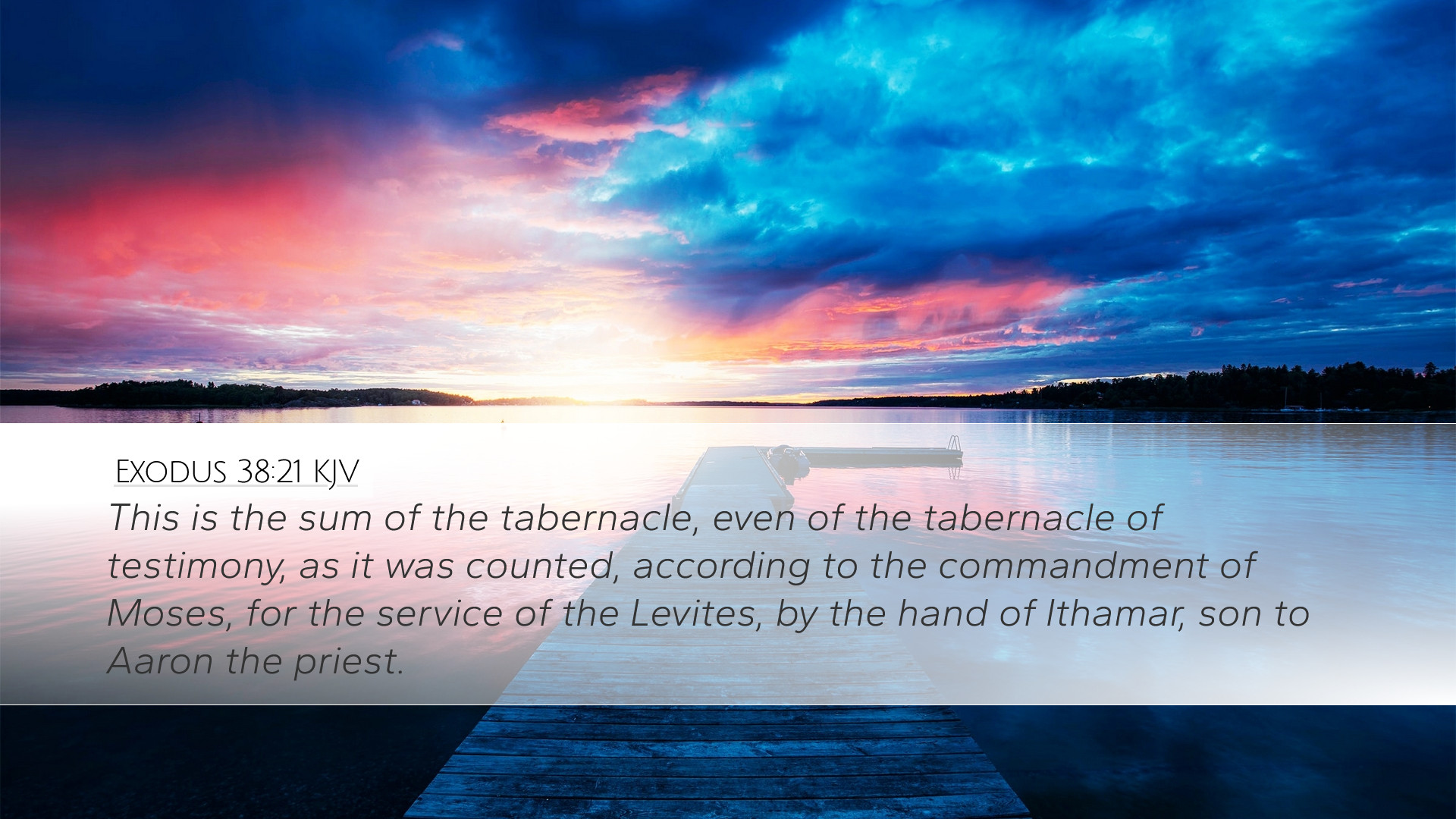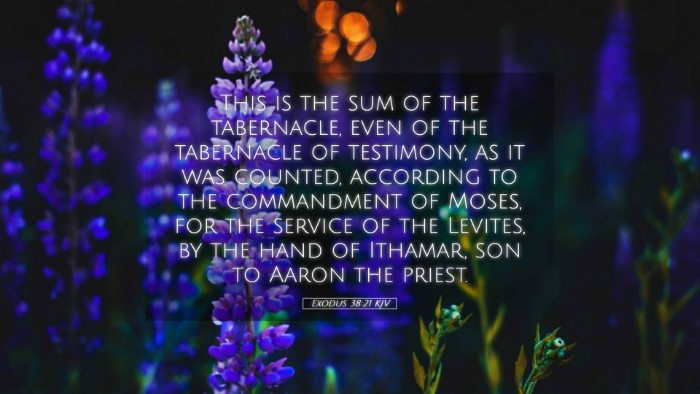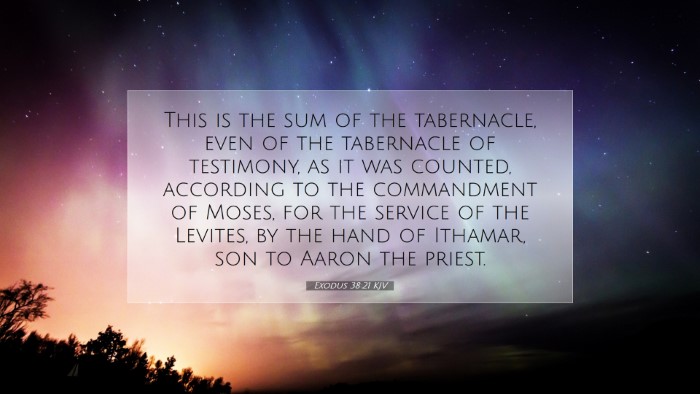Exodus 38:21 - Commentary Summary
Verse: Exodus 38:21
"This is the sum of the tabernacle, even of the tabernacle of testimony, as it was counted, according to the commandment of Moses, for the service of the Levites, by the hand of Ithamar, son to Aaron the priest."
Introduction
The verse Exodus 38:21 serves as a critical summary of the construction of the tabernacle, emphasizing the careful organization and divine command that guided the Israelites during this sacred process. It provides insight into the roles of various individuals and highlights the meticulous nature of the worship system established by God.
Insights from Commentaries
This commentary draws from insights provided by notable figures in biblical scholarship, including Matthew Henry, Albert Barnes, and Adam Clarke. Each offers a unique perspective on this verse, enriching our understanding.
Matthew Henry's Commentary
Matthew Henry emphasizes the significance of the tabernacle as a representation of God's dwelling among His people. He points out that the tabernacle is referred to as "the tabernacle of testimony," indicating its role as a testament to God's covenant with Israel. Henry notes:
- Divine Ordination: The construction was executed precisely according to divine instructions. It underscores the importance of obedience to God in all worship-related matters.
- Leadership Role: The mention of Ithamar signifies the involvement of priestly leadership, showcasing how God distributes responsibilities among His people for His service.
- Community Effort: Although this verse focuses on the priestly order, Henry highlights that the entire community contributed to the tabernacle’s construction, representing unity in worship.
Albert Barnes' Notes
Albert Barnes provides a theological reflection on the tabernacle and its components, pointing out that:
- Counting and Accountability: The meticulous counting and recording of materials emphasizes accountability in the service of God. Each item was accounted for as part of the broader service to the community.
- Levitical Service: Barnes discusses the significance of the Levites' role. Their service was central to the worship practices, and the tabernacle was constructed to facilitate their access to God's presence.
Adam Clarke's Commentary
Adam Clarke offers an analytical perspective, focusing on some of the logistical aspects of the tabernacle:
- Structural Details: Clarke may examine the physical architecture of the tabernacle, noting its design and materials as reflective of the grandeur of God’s dwelling.
- Symbolism: Clarke often interprets elements symbolically. The tabernacle serves not just as a place of worship but as a foreshadowing of Christ, who later becomes the ultimate dwelling place of God among men.
Theological Implications
Exodus 38:21 presents profound theological implications for understanding God’s relationship with His people:
- God's Presence: The tabernacle symbolizes God's desire to dwell among His people, highlighting His immanence.
- Obedience and Order: The required obedience to divine specifications reveals that God is a God of order, demanding that His worship be executed with reverence and precision.
- Integration of Community: This verse illustrates how the construction of the tabernacle involved the entire community, serving as a precursor to the later corporate expressions of worship in temples.
Applications for Today
The insights gained from Exodus 38:21 can be applied to contemporary worship in the following ways:
- Commitment to Excellence: Just as the Israelites committed themselves to the careful construction of the tabernacle, modern churches should strive for excellence in how they conduct worship services.
- Roles in Ministry: Understanding the roles within the church as likened to the priestly functions of the Levites helps in distributing responsibilities effectively while honoring God's design.
- Community Involvement: Engaging the congregation in meaningful ways fosters a sense of belonging and ownership in the communal worship experience.
Conclusion
Exodus 38:21 offers a concise yet rich summary of the tabernacle's construction, reflecting themes of divinity, order, and community. The insights from revered commentaries deepen our understanding and encourage today's believers to honor God through meticulous and heartfelt worship.


